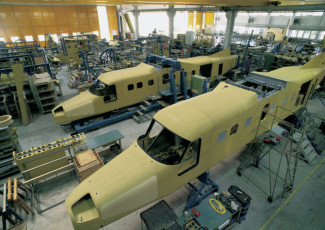Gearing Up to Meet Industry Needs
By Dennis Pierce
July 1, 2016
Dawson Community College’s new Corrosion Technology program demonstrates the college’s responsiveness to industry needs.
During a conversation last year with Dawson Community College (DCC) administrators, a representative from the oil and gas industry mentioned the industry needed corrosion technicians who could prevent or repair the internal corrosion of pipelines.
Industry representatives could count on one hand the number of U.S. colleges that offer a corrosion technology program, and none of them were in Montana or even the upper Midwest. Montana businesses were hiring students from Kilgore College in Texas before they even graduated from that college’s corrosion technology program — but many of these new hires left after experiencing their first Montana winter.
Recognizing a key workforce need in their community, DCC administrators created a two-year Associate of Applied Science degree program in Corrosion Technology in less than a year. The program will begin classes in August.
Workforce Education Coordinator Traci Masau explains how the college was able to respond so quickly.
Look to other colleges for help. “The first thing I did was research corrosion technology,” Masau says. She discovered that only a few other community colleges offered programs in this field, including Kilgore College and Seward County Community College in Kansas.
“I reviewed their information and also had conversations with both schools,” she says. “They were very willing to work with me. They shared their course and textbook lists and equipment and lab sheets.”
Meet with area employers to understand their needs. DCC held a Welding and Oil and Gas Symposium in May 2015, inviting regional business and industry partners. A representative from Seward County Community College shared information about its program.
“We had an industry representative explain corrosion,” Masau says. “We then had a breakout session where it was confirmed from both sectors — welding and oil and gas — that there was a need for this type of program, and that it would be mutually beneficial for the college and the workforce.”
Following the DACUM (curriculum development) process, DCC invited corrosion industry partners to attend a full-day meeting in which these industry representatives explained the life of a corrosion technician. “They discussed all the skills and abilities that were needed and then described the duties, tasks and equipment that went along with those,” Masau says. “The duties were numbered, and we used these to plan and name our courses.”
Form an advisory committee, develop the curriculum — and ask for industry support. DCC submitted the necessary paperwork to create the new program to the Montana Board of Regents in November 2015, but the program was not approved until the board met the following March. In the meantime, the college contracted with a curriculum developer to begin designing the courses, and it formed a Corrosion Technology Advisory Committee, which first met in April.
“Industry partners were in attendance to review the curriculum and the equipment list,” Masau says. “We also asked for any support we could receive.” So far, industry partners have donated pipe and were involved in interviewing the program’s instructor.
“There are still pieces of the program that are coming together,” Masau says, “but we had a new, approved program in less than a year.” Partnerships with other colleges and with industry representatives were critical to this success.
“It is very important to keep business and industry involved from the very beginning,” Masau concludes. “You need their buy-in. Getting them involved can be a slow process, so it’s important to be patient and continue working on the partnerships — but I’ve found that many of these individuals and companies are eager to be involved. If you don’t ask them, you’ll never know their willingness.”






